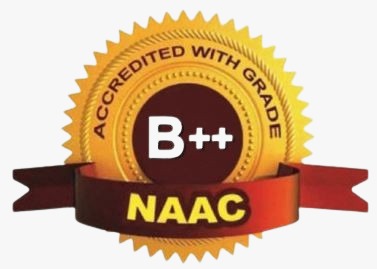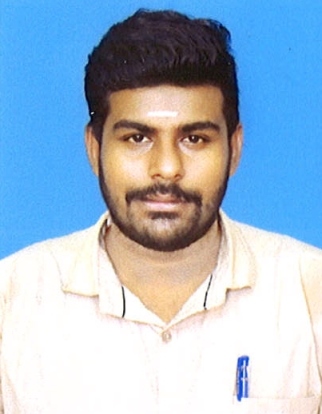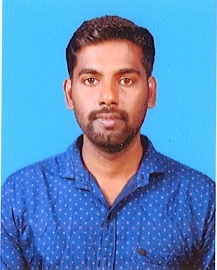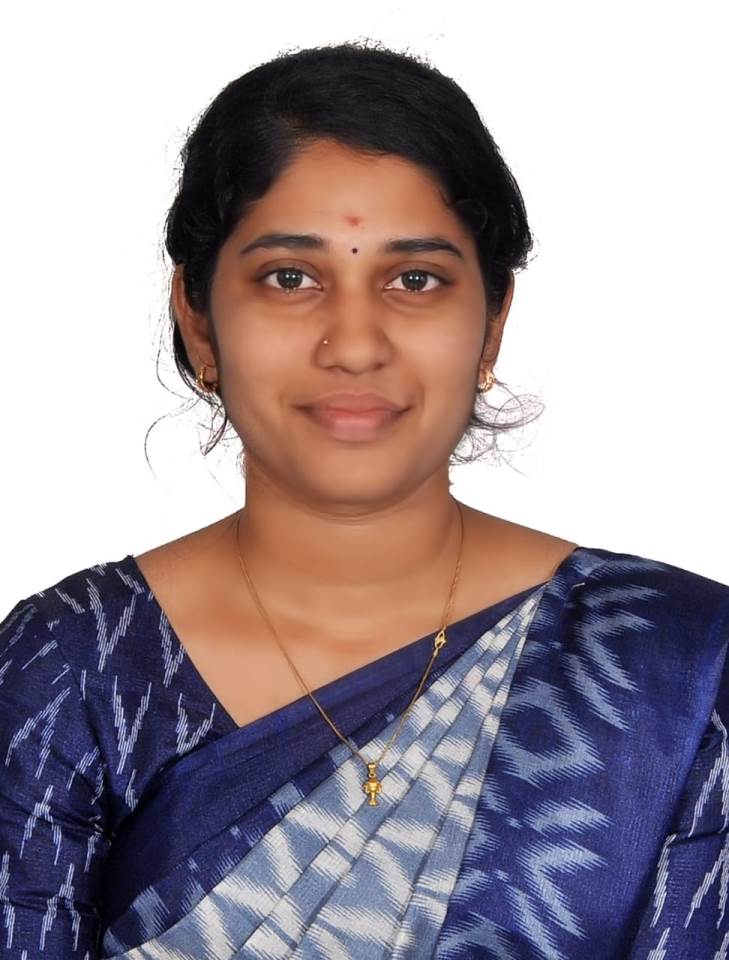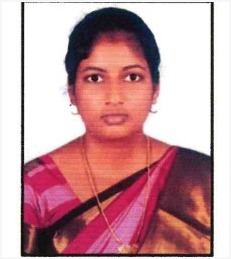Agricultural Engineering
Course Description
The Department of Agriculture Engineering was established in the year 2020 with an intake of 60 students. This Programme B.Tech-(Agricultural Engineering) is offered as a four years full time Under Graduate (UG) programme for the students. B.Tech-(Agri. Engg.) is recognized as the world wide emerging area of today’s engineering and technology world and was listed in the AICTE (All India Council for Technical Education).
The Department of Agriculture Engineering was established with the primary goal of providing Innovative Entrepreneurs to the Society in the field of Agriculture. Design, construction, and improvement of farming equipment and machinery are under the purview of agriculture engineering. The latest technology is used by agriculture engineers to address the problems of environmental issues and activities.
The department provides a top-notch learning environment with a group of faculty members who are well equipped to motivate students to advance their technical knowledge and create a spirit of teamwork. The strength of the department is largely contributed by a team of dedicated, qualified and experienced faculty member who are specialized in various fields. The research activities of the department are promoted by well qualified faculty members. The research promotion of the department is evidenced by a number of research paper published in high reputed journals. Beside the regular classroom lectures the students are given laboratory exercise to acquire practical skill and computing capabilities.
Vision:
The vision of the Department of Agricultural Engineering is to develop the department into a center of excellence of international repute in Agricultural Engineering and technology to sustainably advance agriculture, industry, and living systems.
Mission:
1. To create manpower and technologies for effectively addressing challenges imposed by rapidly growing world population, expanding food and energy needs, increasing resource demands and greater environmental stresses through effective teaching, research and extension.
2. Building a center of excellence is planned to strengthen partnerships and links between academics, agro-industry and education in order to promote student competency in line with societal expectations.
PEO (PROGRAM EDUCATIONAL OBJECTIVE)
Graduates can
1. To train and educate students with general knowledge and skills in agricultural water management, agricultural production process, farm machinery and farm management
2. To provide a sound theoretical knowledge in engineering principles applied to agriculture.
3. To prepare students for a successful agricultural engineering career integrating all aspects of engineering in agriculture.
4. To develop innovative capacity of students for increasing agricultural production with scarce water resources available.
5. To impart positive and responsive out their mission as engineers. reach attitudes, initiative and creative thinking in their mission as engineers.
6. To understand ethical issues and responsibility of serving the society and the environment at large.
PSO (PROGRAM SPECIFIC OUTCOME)
Graduates should be able to
1. To make expertise in design and engineering problem solving approach in agriculture with proper knowledge and skill.
2.To enhance the ability of the students to formulate solutions to real-world problems pertaining to sustained agricultural productivity using modern technologies.
3.To inculcate entrepreneurial skills through strong Industry-Institution linkage.
Course Outcomes
| Regulation-2021-UG | |||
|---|---|---|---|
| YEAR /SEMESTER:II/III | |||
| C301-MA3301-FOURIER SERIES AND LINEAR PROGRAMMING | |||
| C301.1 | Apply Fourier series techniques used in wide variety of situations in which the functions used are not periodic and to solve boundary value problems. | ||
| C301.2 | Apply the Fourier transform techniques to solve boundary value problems. | ||
| C301.3 | Develop a fundamental understanding of linear programming models, able to develop a linear programming model from problem description, apply the Simplex method for solving linear programming problems. | ||
| C301.4 | Analyze the concept of developing, formulating, modeling and solving transportation and assignment problems. | ||
| C301.5 | Determine the optimum solution for non-linear programming problems. | ||
| C302– AI3301 PRINCIPLES OF SOIL SCIENCE AND ENGINEERING | |||
| C302.1 | Understand the fundamental knowledge of soil physical parameters. | ||
| C302.2 | Perform soil survey and classify soil based on its characteristics | ||
| C302.3 | Explain the phase relationship and soil compaction. | ||
| C302.4 | Analyze Engineering properties of soil | ||
| C302.5 | Understand Concepts of bearing capacity and slope stability. | ||
| C303 –AI3302 UNIT OPERATIONS IN AGRICULTURAL PROCESSING | |||
| C303.1 | Examine the evaporation process and types of evaporators for food industry | ||
| C303.2 | Analyze the principles of filtration and mechanical separation equipment | ||
| C303.3 | Identify size reduction and grinding equipment and understand the factors affecting the process | ||
| C303.4 | Identify the gas-liquid and solid-liquid equilibrium concepts and factors influencing equilibrium separation process. | ||
| C303.5 | Differentiate crystallization and distillation processes and identify processing equipment. | ||
| C304– AI3303 FLUID MECHANICS AND PUMPS | |||
| C304.1 | Demonstrate the properties of fluid and its behavior in static conditions along with pressure measurements. | ||
| C304.2 | Apply the conservation laws applicable to fluid flows and its application through fluid kinematics and dynamics. | ||
| C304.3 | Estimate losses in pipelines for both laminar and turbulent conditions and analysis of pipes connected in series and parallel and to understand the concept of application of dimensional analysis in model studies. | ||
| C304.4 | Describe the basics characteristics of open channel flows and analysis of steady uniform flow with hydraulically efficient channel sections and to measure the flows in artificial/natural channels. | ||
| C304.5 | Explain the classification, design and working principles of various pumps. | ||
| C305- ME3491 THEORY OF MACHINES | |||
| C305.1 | Discuss the basics of mechanism. | ||
| C305.2 | Solve problems on gears and gear trains. | ||
| C305.3 | Examine friction in machine elements. | ||
| C305.4 | Calculate static and dynamic forces of mechanisms. | ||
| C305.5 | Calculate the balancing masses and their locations of reciprocating and rotating masses. | ||
| C306–CE3351 SURVEYING AND LEVELLING | |||
| C306.1 | Introduce the rudiments of various surveying and its principles. | ||
| C306.2 | Imparts knowledge in computation of levels of terrain and ground features | ||
| C306.3 | Imparts concepts of Theodolite Surveying for complex surveying operations | ||
| C306.4 | Understand the procedure for establishing horizontal and vertical control | ||
| C306.5 | Imparts the knowledge on modern surveying instruments | ||
| YEAR/SEMESTER:II/IV | |||
| C401-AI3401 TRACTORS AND ENGINE SYSTEMS | |||
| C401.1 | Get an idea on various machinery available for farm mechanization | ||
| C401.2 | Calculate the valve timing of an IC engine and represent by a drawing | ||
| C401.3 | Gain knowledge on the transmission system of a tractor | ||
| C401.4 | Understand the hydraulic system in a tractor and estimate the traction. | ||
| C401.5 | Gain knowledge on power tillers, bulldozers and different tractor testing procedures. | ||
| C402- AI3402- SOIL AND WATER CONSERVATION ENGINEERING | |||
| C402.1 | Gain fundamental knowledge on the concepts of erosion and sedimentation. | ||
| C402.2 | Gain knowledge about evolution of Universal Soil Loss Equation: and its applications. | ||
| C402.3 | Explain and design erosion control measures types and design specifications | ||
| C402.4 | Have sufficient knowledge on soil and water conservation measures. | ||
| C402.5 | Have sufficient knowledge on reservoir sedimentation and sediment control methods. | ||
| C403 – AI3403-STRENGTH OF MATERIALS FOR AGRICULTURAL ENGINEERING | |||
| C403.1 | Find the stress distribution and strains in regular and composite structures subjected to axial loads. | ||
| C403.2 | Evaluate the stresses in plane trusses | ||
| C403.3 | Assess the shear force, bending moment and bending stresses in beams | ||
| C403.4 | Apply torsion equation in design of circular shafts and helical springs | ||
| C403.5 | Evaluate the slope and deflection of beams and buckling loads of columns under different boundary conditions | ||
| C404–AI3404 HYDROLOGY AND WATER RESOURCES ENGINEERING | |||
| C404.1 | Define the hydrological processes and their integrated behaviour in catchments | ||
| C404.2 | Apply the knowledge of hydrological processes to address basin characteristics, runoff and hydrograph | ||
| C404.3 | Explain the concept of hydrological extremes and its management strategies | ||
| C404.4 | Describe the principles of storage reservoirs | ||
| C404.5 | Understand and apply the concepts of groundwater management | ||
| C405–ME3391 ENGINEERING THERMODYNAMICS | |||
| C405.1 | Apply the zeroth and first law of thermodynamics by formulating temperature scales and calculating the property changes in closed and open engineering systems. | ||
| C405.2 | Apply the second law of thermodynamics in analyzing the performance of thermal devices through energy and entropy calculations. | ||
| C405.3 | Apply the second law of thermodynamics in evaluating the various properties of steam through steam tables and Mollier chart | ||
| C405.4 | Apply the properties of pure substance in computing the macroscopic properties of ideal and real gases using gas laws and appropriate thermodynamic relations. | ||
| C405.5 | Apply the properties of gas mixtures in calculating the properties of gas mixtures and applying various thermodynamic relations to calculate property changes. | ||
| C406–GE3451 ENVIRONMENTAL SCIENCES AND SUSTAINABILITY | |||
| C406.1 | To recognize and understand the functions of environment, ecosystems and biodiversity and their conservation. | ||
| C406.2 | To identify the causes, effects of environmental pollution and natural disasters and contribute to the preventive measures in the society. | ||
| C406.3 | To identify and apply the understanding of renewable and non-renewable resources and contribute to the sustainable measures to preserve them for future generations. | ||
| C406.4 | To recognize the different goals of sustainable development and apply them for suitable technological advancement and societal development. | ||
| C406.5 | To demonstrate the knowledge of sustainability practices and identify green materials, energy cycles and the role of sustainable urbanization. | ||
| YEAR/SEMESTER:III/V | |||
| C501– AI3501 FARM EQUIPMENT AND MACHINERY | |||
| C501.1 | To understand the basics of mechanizing a farm. | ||
| C501.2 | To understand the components of various tillage equipment. | ||
| C501.3 | To study about different sowing and fertilizing attachments and stand-alone units. | ||
| C501.4 | To study about weeder attachments and sprayers. | ||
| C501.5 | To study about combine harvester-thresher for various crops. | ||
| C502– AI3002 FOOD AND DAIRY ENGINEERING | |||
| C502.1 | Explain physio-chemical properties of food material and select suitable thermal processing method for food products based on their properties | ||
| C502.2 | Compare food drying systems and assess their limitations in applying different food products | ||
| C502.3 | Explain physical, chemical and thermal properties of milk and compare milk processing techniques | ||
| C502.4 | Apply various milk processing equipment for processing and producing milk products and evaluate their performance | ||
| C502.5 | Assess the application and limitations of advanced food processing techniques | ||
| C503– CAI335 SOLAR AND WIND ENERGY SYSTEM | |||
| C503.1 | Understand the basics of solar energy and solar thermal energy conversion technologies and compare direct mode and indirect mode solar dryers | ||
| C503.2 | Analyse the principles and applications of solar thermal power stations, solar pond, and solar stills 127 | ||
| C503.3 | Understand the wind power laws and calculate the torque and power characteristics of wind energy | ||
| C503.4 | Design wind mills and test the units for certification | ||
| C503.5 | Understand the principles of geothermal energy, wave energy, tidal energy, OTEC energy, fuel cells and analyse their applications | ||
| C504– AI3013 WATERSHED PLANNING AND MANAGEMENT | |||
| C504.1 | The students will able to describe the watershed management concepts | ||
| C504.2 | The students will able to describe the components involved in watershed planning | ||
| C504.3 | The students will able to describe the methods of water harvesting structures | ||
| C504.4 | The students will able to design and construct the soil conservation structures | ||
| C504.5 | The students will able to prioritize and execute the watershed development programme | ||
| C505– AI3019 SUSTAINABLE AGRICULTURE AND FOOD SECURITY | |||
| C505.1 | Understand methods to sustain land resources. | ||
| C505.2 | Cognize approaches to sustain water resources and its utilization for agriculture and allied activities. | ||
| C505.3 | Design and develop new, improved and sustainable systems of agriculture and allied activities. | ||
| C505.4 | Understand new technologies for improving food security. | ||
| C505.5 | Comprehend policies to achieve sustainable farming and food security | ||
| YEAR /SEMESTER:IV/VII | |||
| C601– AI3601 POST- HARVEST TECHNOLOGY | |||
| C601.1 | Understand the importance of post-harvest processing and determine moisture content of products | ||
| C601.2 | Perform drying of agricultural products and analyze performance of dryers | ||
| C601.3 | Recognize the working principles of grain cleaning and grading devices and able to select suitable equipment for cereal grains, oilseeds, and pulses | ||
| C601.4 | Understand the operation of post-harvest equipment like shellers, conveyors | ||
| C601.5 | Different Post Harvest operations and processing methods of harvested crops. | ||
| C602– AI3602 IRRIGATION AND DRAINAGE ENGINEERING | |||
| C602.1 | The students will have knowledge and skills on Planning, design, operation and management of Water Resources and Irrigation Requirement. | ||
| C602.2 | The student will gain knowledge on different methods of irrigation including canal irrigation. | ||
| C602.3 | Obtain knowledge on different types Diversion and Impounding Structures | ||
| C602.4 | Understand the concept Canal Irrigation and Command Area Development | ||
| C602.5 | Understand the concept recycling of drainage water for irrigation. | ||
| YEAR /SEMESTER:IV/VIII | |||
| C701– AI3701 REMOTE SENSING AND GEOGRAPHICAL INFORMATION SYSTEM | |||
| C701.1 | Understand the remote sensing principles and systems. | ||
| C701.2 | Gain sufficient knowledge on satellite data processing and available data products. | ||
| C701.3 | Know the concept of GIS and its tools. | ||
| C701.4 | Have knowledge on data input and analysis techniques. | ||
| C701.5 | Utilize these advanced techniques in addressing the real world problems. | ||
| C702– AI3702 RENEWABLE ENERGY IN AGRICULTURAL ENGINEERING | |||
| C702.1 | The students will be able to understand the concepts of bio energy sources and its applications. | ||
| C702.2 | Gain sufficient knowledge on Bioenergy. | ||
| C702.3 | Know the concept of Bioreactors and Fermentors and their working principles. | ||
| C702.4 | Have knowledge on production of alcohol. | ||
| C702.5 | Utilize these advanced techniques in conserving energy and protecting the environment. | ||
| C704– GE3752 TOTAL QUALITY MANAGEMENT | |||
| C704.1 | Ability to apply TQM concepts in a selected enterprise. | ||
| C704.2 | Ability to apply TQM principles in a selected enterprise. | ||
| C704.3 | Ability to understand Six Sigma and apply Traditional tools, New tools, Benchmarking and FMEA. | ||
| C704.4 | Ability to understand Taguchi's Quality Loss Function, Performance Measures and apply QFD, TPM, COQ and BPR. | ||
| C704.5 | Ability to apply QMS and EMS in any organization. | ||
| YEAR /SEMESTER:IV/VII | |||
| C801– AI3811 PROJECT WORK/INTERNSHIP | |||
| C801.1 | Identify agricultural engineering problems reviewing available literature. | ||
| C801.2 | Identify appropriate techniques to analyze complex agricultural engineering problems. | ||
| C801.3 | Apply engineering and management principles through efficient handling of project, have a clear idea of his/her area of work and they are in a position to carry out the work in a systematic way | ||
PROGRAMME OUTCOMES(POs)
Po Graduate Attribute
1.Engineering Knowledge: Apply the knowledge of mathematics, science, engineering fundamentals, and an engineering specialization to the solution of complex engineering problems.
2.Problem Analysis: Identify, formulate, review research literature, and analyse complex engineering problems reaching substantiated conclusions using first principles of mathematics, natural sciences, and engineering sciences.
3.Design/ Development of Solutions: Ability to design an irrigation system to meet the desired needs within realistic Constraints such as economic, environmental, social, political, ethical, and sustainability considerations.
4.Design/ Development of Solutions: Ability to design an irrigation system to meet the desired needs within realistic Constraints such as economic, environmental, social, political, ethical, and sustainability considerations.
5.Modern Tool Usage: Ability to function in interdisciplinary teams within the Institute and also with other organizations at National/ International level while planning the research projects.
6.The Engineer and Society: Ability to use the techniques, skills and modern engineering tools necessary for Agricultural engineering practice.
7.Environment and Sustainability: Will develop competencies in computer and automatic control systems, information systems, mechanical systems, natural resource systems to solve engineering problems.
8.Ethics : Graduates will be able to express themselves clearly in oral and verbal communication needs.
9.Individual and Team Work: Ability to devise a strategy or action plan to utilize the acquired knowledge in increasing water- use efficiency, farm mechanization and Post harvest technology etc.
10.Communication: Graduates will be capable of self-education in emerging problems and understand the value of lifelong learning in Food Technology, Farm Machinery and Food Processing.
11.Project Management and Finance: Demonstrate knowledge and understanding of the engineering and management principles and apply these to one’s own work, as a member and leader in a team, to manage projects and in multidisciplinary environments.
12.Life-long Learning: Recognize the need for, and have the preparation and ability to engage in independent and life-long learning in the broadest context of technological change.
Faculty List
Curriculum Details
| S.NO | Regulation | File |
|---|---|---|
| 1. | B.E.-AGRI-R2021 | Click here |
| 2. | B.E.-AGRI-R2017 | Click here |
Value Added Courses
| S.No | Name of the course | No of students | Duration(hours) |
|---|---|---|---|
| 1 | Unxt programme by Unnati foundation | 7 | 90 |
| 2 | IABS-Integrated Approach to Building Services | 46 | 112 |
| 3 | Microsoft Office | 60 | 30 |
Innovative teaching
Innovative teaching embodies a proactive approach aimed at seamlessly integrating cutting-edge teaching strategies and methods, widely acknowledged as a fundamental avenue for attaining a competitive advantage.
• Embracing Innovative Teaching Approaches : Proactively integrating novel teaching strategies and methodologies is a recognized method for gaining a competitive edge in education.
• Leveraging Technology-Enhanced Learning : Faculty effectively utilizes advanced ICT-based teaching tools, including smart classrooms and LCD projectors, to enhance the learning experience and contribute to students' academic improvement.
• Enabling Blended Learning Environments : Our Wi-Fi-enabled campus fosters blended learning, offering access to e-learning websites and resources that complement traditional classroom instruction.
• Utilizing Google Classroom Integration :We employ Google Classroom, an application designed to enhance the learning journey. It facilitates interactive engagement with students through the sharing of technical content, lecture notes, and assignments.
• Promoting Continuous Learning : Both faculty members and students engage in online courses offered by NPTEL within their areas of interest. This practice allows them to stay updated on current trends and develop expertise across multiple domains.
• Enriching Learning Through Webinars : Engaging webinars complement conventional classroom teaching, serving as an effective medium for knowledge transfer and interactive learning experiences.
• Encouraging Professional Development : Faculty members are actively encouraged to participate in Faculty Development Programs (FDPs), short-term courses, and staff development initiatives on advanced topics. This ensures that they remain well-equipped with the latest knowledge and skills.
Laboratory Details
Our department has eight well equipped laboratories
1. Farm Machinery Laboratory:
The Farm Machinery laboratory of the college is well equipped with modern energy-efficient farm machines like disc plough, disc harrow, sprayer, seed drill, rice transplanter, weeder and all kinds of machines required for different farm operations.
2. Farm Power Lab:
The lab has facility for exposing the students to tractors, engines and their systems. The lab contains cut sections and models for various tractors and engine and their system such as crank arrangement, valve system, lubrication system, fuel system, gear system, hydraulic system etc.
3. Material Testing Lab:
This lab is well equipped with equipment like Universal Testing Machine, Fatigue, Impact, Torsion & Hardness testing machines to evaluate the strength & properties of different materials.
4. Soil Mechanics Lab:
This lab is essential as soil possess a variety of physical properties of soil. Soil mechanics lab is well equipped with all equipments required for identification and classification of soils.
5. Post-Harvest technology lab:
The Processing and food engineering laboratory is well equipped with various kinds of modern equipments for the training of UG students. Some of the equipments are Porosity apparatus, Coefficient of friction apparatus, Paddy thresher, Oil expeller and Groundnut decorticator
6. Irrigation Laboratory:
A laboratory with models of almost all the irrigation and drainage is available which provides a means for effective training of the students. Some of the equipments are evaporimeter, double ring infiltrometer, irrigation automation working model, drip and sprinkler irrigation setup,
6. Irrigation Laboratory:
Faculty members are actively encouraged to participate in Faculty Development Programs (FDPs), short-term courses, and staff development initiatives on advanced topics. This ensures that they remain well-equipped with the latest knowledge and skills.
Magazine & Newsletter Details
| S No. | Name of the Newsletter / Magazine | File |
|---|---|---|
| 1. | NEWS LETTER 2024-2025 | Click here |

